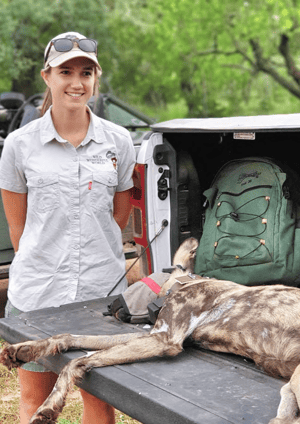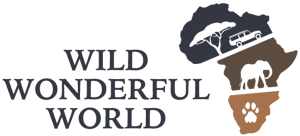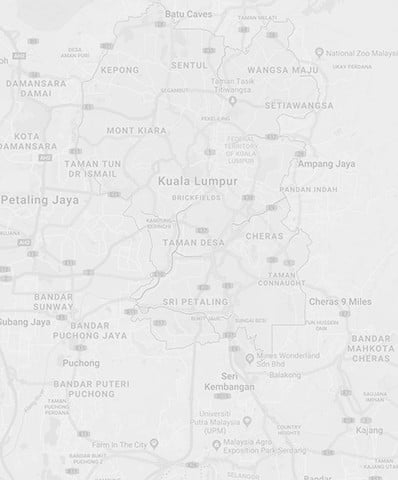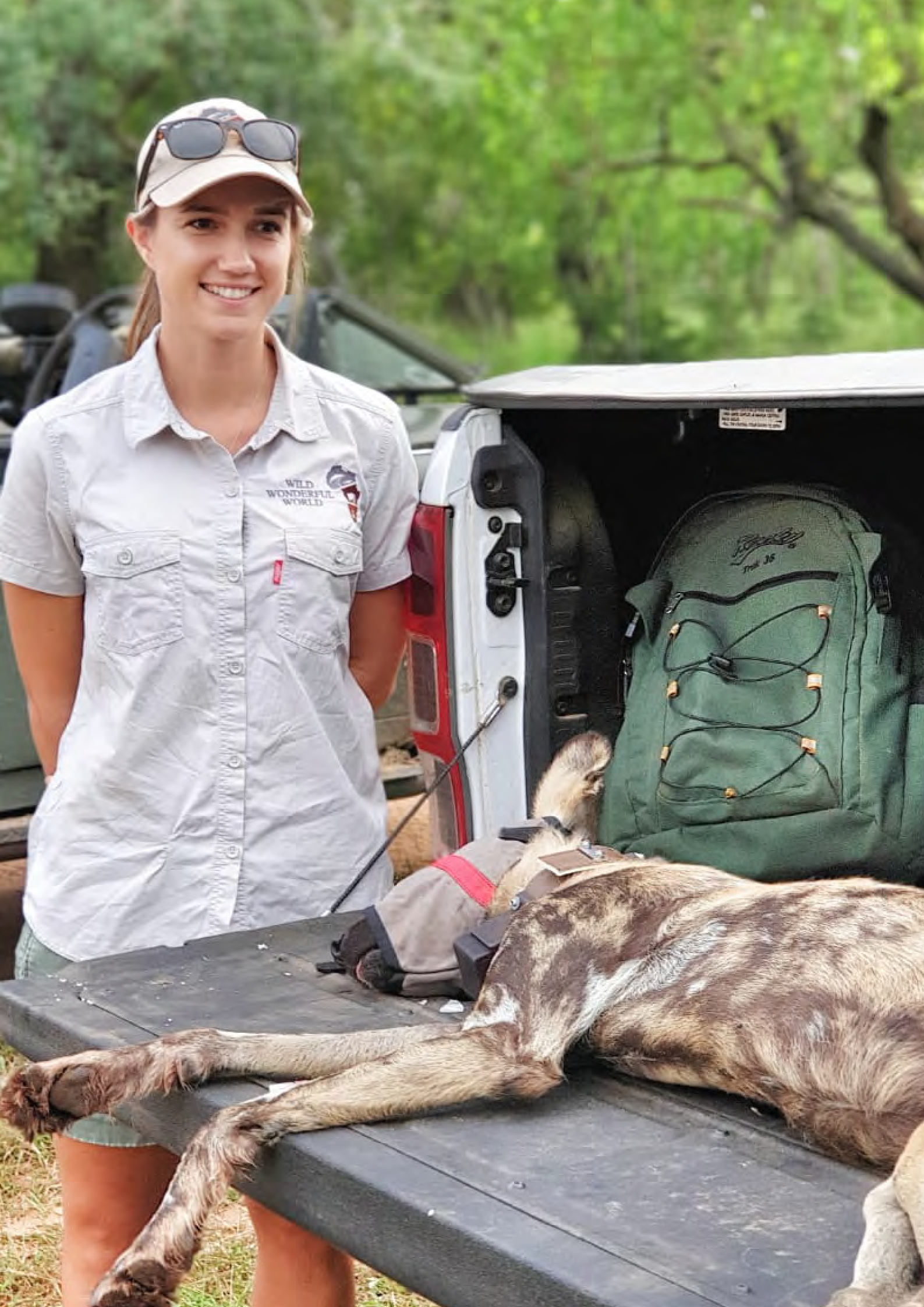In the latest edition of KLASSics Chronicle, KLASSics caught up with Michelle Campbell, Alumna 1998 - 2001, and now Director and Private Guide of Wild Wonderful World in South Africa.
Not a day goes by where I am not thankful to be in the bush surrounded by incredible wildlife, and I feel proud to have broken through the corporate mould and followed my dreams

Like many of my peers at Alice Smith, I moved a lot as a child – I was born in South Africa, moved to Thailand, Malaysia, France, England, UAE and then back to South Africa, where I am still based today. My time at Alice Smith without a doubt set the precedent for my later years, where competitions in sport and academics alike formed a solid foundation on which to grow. I often think back with fond memories to my time spent training for athletics at the Maybank stadium and hours spent in the pool under instruction from Mr Lee!
After university, I worked as an economist for HSBC in Dubai, covering the Arab Spring and Middle East uprisings – an exciting time to be in the field of macroeconomics. It was my passion for wildlife and the African bush however, that fuelled a change, and I retrained as a professional safari guide back in South Africa. I found guiding far more aligned with my personal interests and it allowed me the unique opportunity to educate people about the complexities of nature and the vast number of threats to its very delicate balance.
Not a day goes by where I am not thankful to be in the bush surrounded by incredible wildlife, and I feel proud to have broken through the corporate mould and followed my dreams. I am more determined than ever to help protect and conserve wildlife in Africa for our future generations.
Do share with us more about your wildlife conservation journey...
I run a company called Wild Wonderful World, and my journey to getting here is rather unusual. In 2017, fuelled by the desire to do more to help save wildlife, myself and my partner Grant quit our jobs as safari guides and embarked on a conservation expedition across Africa. Understanding the threats to wildlife in our home country and what was being done to mitigate them was one thing, but what about the rest of Africa? There was only one way to find out, and that was to get out there, get involved on the ground and experience for ourselves what conservation in Africa really meant. It was quite funny, at the time, watching the reaction of people when we told them we were leaving to go live in our Land Rover for a year.
We left South Africa in November 2017, and returned home 393 days and 19,040km later – wide eyed, overwhelmed and more inspired than ever. We travelled as far north as Murchison Falls National Park in Uganda, through desert, rainforest, lakes and some crazy remote places. We worked with all sorts of projects from anti poaching units to community outreach programmes, worked with people fighting poaching, people saving the orphaned wild animals and people working to stop poachers being poachers in the first place. We experienced lows like you can’t believe – nothing can ever prepare you for finding your first poached elephant – but incredible highs, too – watching as an orphan elephant whose mother was lost to poachers, take her first steps back into the wild after being lovingly nursed to health and raised for release.
The aim of our expedition was to gain a better understanding of the conservation issues across the continent and what was required in order to make a meaningful contribution, going forward. It is fair to say we developed a solid understanding of the issues and threats facing wildlife and return back to South Africa ready to start a journey of a different kind. In 2019, we launched Wild Wonderful World, a company committed to conservation in Africa. Using a tiered approach focusing on three key areas – safaris, volunteering and corporate sponsorship – we have developed a model that focuses on connecting people from around the world to conservation projects in Africa, ultimately contributing to the funding needs of conservation.
In 2019, we launched Wild Wonderful World, a company committed to conservation in Africa. Using a tiered approach focusing on three key areas – safaris, volunteering and corporate sponsorship – we have developed a model that focuses on connecting people from around the world to conservation projects in Africa, ultimately contributing to the funding needs of conservation.
Looking back on your journey so far, has your early years at Alice Smith School helped you get to where you are now?
My time at Alice Smith certainly contributed to my development - for one, I learned how to dedicate myself to my studies, and later work. It has been hugely rewarding setting up and running my own business, and I think the confidence I gained even as a young child at school has helped this happen. Being exposed to so many different people and cultures at Alice Smith also proved to be a huge advantage, where I’ve been able to connect with a much broader range of guests and colleagues than I would have been able to otherwise.
How do you build a self-sustaining enterprise while generating environmental impact?
Wild Wonderful World’s primary mission is to contribute to the conservation of wildlife in Africa. There is no single approach when working to achieve this, so our contribution is multi-faceted.
From a self-sustaining enterprise perspective, the travel agency and tour operator activities of our business are fully for profit, and our environmental impact comes through the design of our itineraries
- we only work with lodges and safari operators that make significant impacts themselves to the conservation of wildlife and development of communities, in the areas they are located. In addition, for every safari we book, Wild Wonderful World pledges a percentage of the total booking value to conservation projects.
More directly, we work with each of our clients/ guests to match them to a wildlife project and incorporate that project into their itinerary, which importantly includes a direct donation to the project. It is important to us that our guests experience for themselves how their donation is put to use; to meet the teams on the ground fighting to save wildlife and give them the opportunity to experience conservation work for themselves. In the words of Sir David Attenborough; “No one will protect what they don’t care about. And no one will care about what they have never experienced.”
Experience is enormously important – experiencing the thrill of a safari; experiencing animals roaming free in their natural habitat; experiencing the impact sustainable tourism has on local communities; experiencing what it takes to save animals from extinction. Our guests go home as advocates, spreading the message of conservation further still and often continue to support the wildlife project they spent time with.
How can our alumni start their part in making a social impact in small ways?
Advocacy. It can be as simple as having a conversation with your friends and family. In Africa, countless species are on the brink of extinction due to illegal poaching and wildlife trade. Education is key to saving these animals – rhino horn does not have any medicinal properties, neither do pangolin scales – they are both made from Keratin, the same as our fingernails. Exotic pets may seem exciting to own, but give thought as to which jungle or savanna they have been taken illegally from before being sold to you. If we can work together to change perceptions and the way we value our wildlife, our world would be an infinitely better place. For those interested in doing more, get in touch with us at Wild Wonderful World and we can work with you to create your own unique journey with purpose to Africa.
What does the future look like to you?
When people say that natural spaces are disappearing, it means nothing until you drive through a country that once used to be all rainforest and is now 90% farmland. Nor does the gravity of poaching hit you until you walk through a rhino graveyard and visit the last 2 northern white rhinos left on our planet… Sometimes, I feel it is almost impossible to imagine that anyone can change the course of extinction at this stage, but what has stood out to me more than anything, both during my conservation expedition and more so still in my work today, is the incredible people who are doing just that – making a difference. I don’t think we will ever be able to totally eradicate the loss of wildlife and wild areas on our planet, but we can certainly slow it down. I’ve learned that if everyone fights a corner, supports just one project that protects one area, then we stand a chance. So that is what my future looks like – one corner, one project, one fight at a time.
You can follow Michelle’s journey towards conserving and protecting the wildlife in Africa here.



